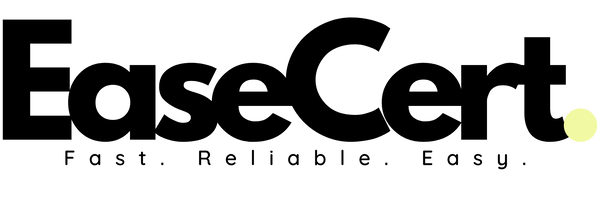
GPSR Penalties: Avoid Fines, Manage Recalls, Appoint an EU Responsible Person
No business looks forward to a product recall, but under Regulation (EU) 2023/988 (General Product Safety Regulation, GPSR), being prepared and acting properly is essential. Poor recall management can damage your brand and result in regulatory penalties. A well-handled recall demonstrates a commitment to safety and reinforces consumer trust.
Why GPSR penalties matter
The EU’s Safety Gate 2024 report shows record product-safety enforcement across Europe. Our post about Europe’s Most Active Product-Safety Authorities in 2024 explains which national authorities filed the most alerts, how this affects GPSR labelling and documentation, and a practical, proportionate strategy for language coverage.
Consumers learn of recalls quickly through Safety Gate alerts, media reports, and social media. Article 35 of the GPSR requires businesses to notify affected consumers directly before public announcements.
Proper compliance reduces exposure to penalties and protects your reputation in the EU market.
Three essential steps to reduce GPSR penalty risk
1. Trace and investigate
Under Article 9, businesses must trace affected products accurately by batch, lot, or serial number and maintain complete records to enable fast identification.
2. Prepare a compliant recall notice
- Product name, brand, identification details, and an image showing identification points
- Hazard explanation in plain language
- Clear stop-use instructions where applicable
- Remedy information: refund, replacement, or repair (Article 37)
- Contact information in relevant EU languages
- Encouragement for consumers to share information
- Machine-readable, accessible online format
3. Notify consumers directly
Use your available customer records (e.g. order history, warranty registrations) to contact affected consumers directly before publishing general announcements. Visit our guide on EU Safety Gate registration for more detail.
EU Responsible Person – Legal requirement under GPSR
If you are a non-EU business selling non-food consumer products in the EU, appointing an EU Responsible Person (EU RP) is mandatory under Regulation (EU) 2023/988.
Key responsibilities of an EU RP include:
- Maintaining technical documentation for inspection
- Verifying compliance with applicable EU safety requirements
- Acting as a contact point for EU market surveillance authorities
- Assisting with recalls, incident reports, and corrective actions
Without a properly appointed EU RP, customs or marketplaces may block your goods from entering or remaining on the EU market.
What products require an EU RP?
This requirement applies to all non-food consumer products, such as home goods, electronics, apparel, jewelry, and lifestyle products. Note that products covered by other frameworks (e.g., Toy Safety Directive, Medical Device Regulation) may have additional obligations.
How EaseCert helps
- German-based EU RP address and registration
- Review of technical documentation and safety labeling
- Ongoing updates and risk analysis
- Support for startups, SMEs, and global brands
Learn more about our EU compliance service solutions.
Summary checklist
- Trace affected products (Article 9)
- Prepare a recall notice meeting Article 35 and Annex VI requirements
- Offer appropriate remedies (Article 37)
- Notify affected consumers directly before publicizing recalls
- Appoint an EU Responsible Person and ensure traceability and documentation
Frequently Asked Questions
Is an EU Responsible Person required for all non-EU brands?
Yes. Under Regulation (EU) 2023/988, all non-EU businesses selling consumer products in the EU must appoint an EU Responsible Person.
What does an EU Responsible Person do?
The EU RP ensures product compliance, maintains documentation, acts as the point of contact for EU authorities, and assists with incident reporting, recalls, and regulatory inquiries.
Where must the Responsible Person’s address appear?
The RP’s name and address must appear on the product, packaging, or accompanying documentation. This is a legal requirement for customs clearance and market surveillance.
Can a freight forwarder or customs agent be my EU RP?
No. Only a qualified entity established in the EU that formally accepts legal responsibility can act as an EU RP.
What happens if I don’t appoint an EU Responsible Person?
Your goods may be blocked at customs, removed from online marketplaces, or face enforcement action, including fines or penalties.
